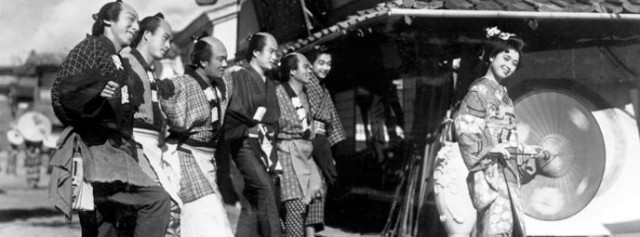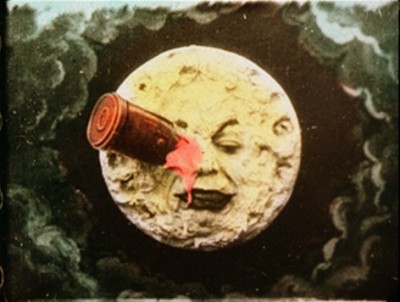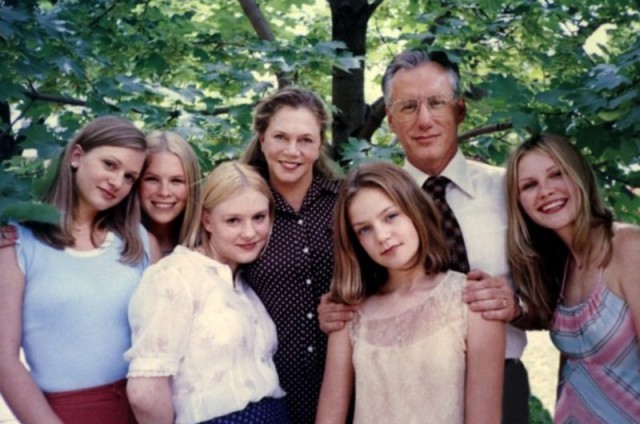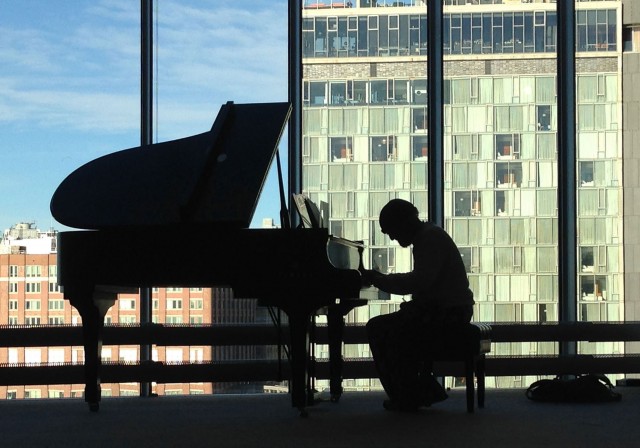
Jazz great Cecil Taylor rehearses at the Whitney in November 2015
Whitney Museum of American Art
Neil Bluhm Family Galleries, fifth floor
99 Gansevoort St.
April 14-24, free with museum admission unless otherwise noted
212-570-3600
whitney.org
The fourth stage of the Whitney’s “Open Plan” series, which previously saw Andrea Fraser, Lucy Dodd, and Michael Heizer take over the large fifth-floor space in the new downtown building, hands the reins over to free jazz legend, poet, and New York City native Cecil Taylor. The eighty-seven-year-old pianist will be celebrated in a series of programs beginning April 14 at 8:00 ($50), when Taylor will make a rare public appearance, collaborating with British drummer Tony Oxley and Japanese dancer and choreographer Min Tanaka. On April 15 at 7:00, cellist Tristan Honsinger will perform a solo set, while writer Thulani Davis, dancer and professor Cheryl Banks-Smith, and bassist Henry Grimes join forces for a unique presentation. On April 16 at 2:00, Banks-Smith will moderate “Cecil Taylor and Dance,” a panel discussion with Dianne McIntyre, Heather Watts, and Tanaka. That evening at 7:00, trumpter Enrico Rava, double bassist William Parker, and drummer Andrew Cyrille will perform as a trio, in addition to a solo set by Cyrille. On April 20 at 3:00, a Poetry and Music gathering brings together poets A. B. Spellman and Anne Waldman and saxophonist Devin Brahja Waldman, Anne’s nephew. On April 21 at 3:00, Poetry and Music features Steve Dalachinsky, Clark Coolidge with Michael Bisio, and Nathaniel Mackey with Grimes. That night at 9:00 ($10), Hilton Als directs a restaging of Adrienne Kennedy’s one-act play A Rat’s Mass, starring Helga Davis; Taylor wrote and directed the music for the show. And on April 22 at 6:00, Chris Funkhouser, Tracie Morris and Susie Ibarra, Fred Moten and William Parker, and Jemeel Moondoc/Ensemble Muntu (featuring Parker, Mark Hennen, and Charles Downs) will present an evening of poetry and music. Throughout this part of “Open Plan,” there will also be listening sessions hosted by Davis, Archie Rand, André Martinez, Gary Giddins, Moten and Funkhouser, Ben Young, and Nahum Chandler in addition to screenings in the Kaufman Gallery of such films as Sheldon Rochlin’s Cecil Taylor: Burning Poles, Chris Felver’s Cecil Taylor: All the Notes, Billy Woodberry’s And When I Die, I Won’t Stay Dead, and the world premiere of Amiel Courtin-Wilson’s The Silent Eye about Taylor and Tanaka (and followed by Q&As with the director, who sat on Taylor’s stoop until the pianist would finally talk to him). There will also be documents, videos, audio, scores, photographs, poetry, and ephemera from throughout Taylor’s life and career on view.
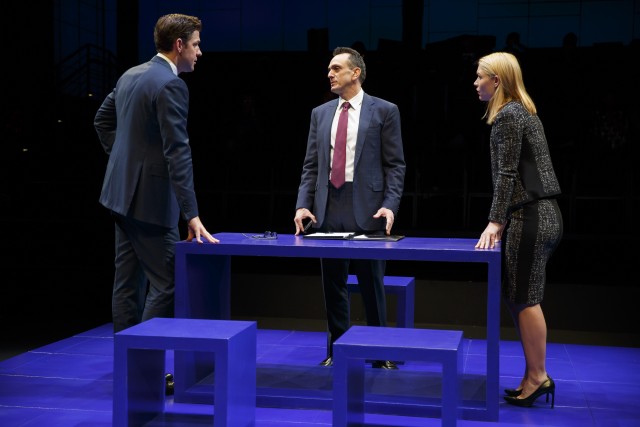
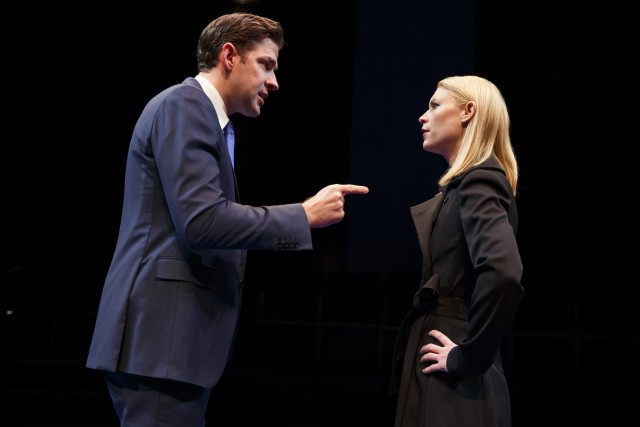
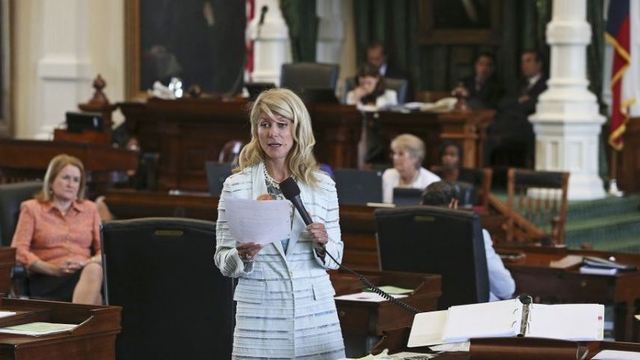

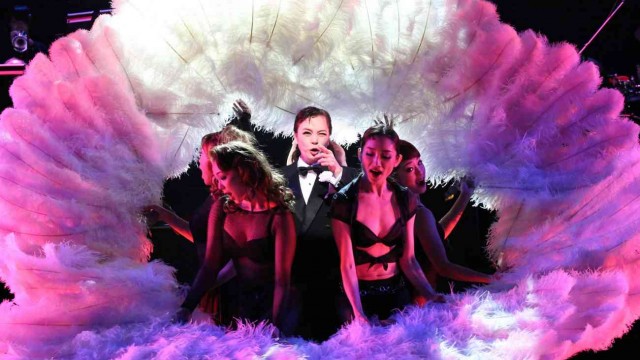
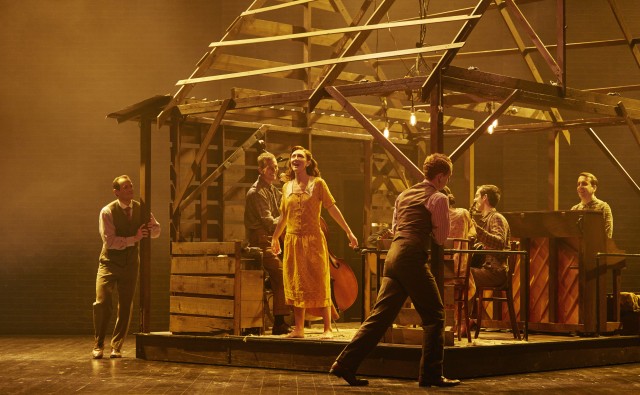
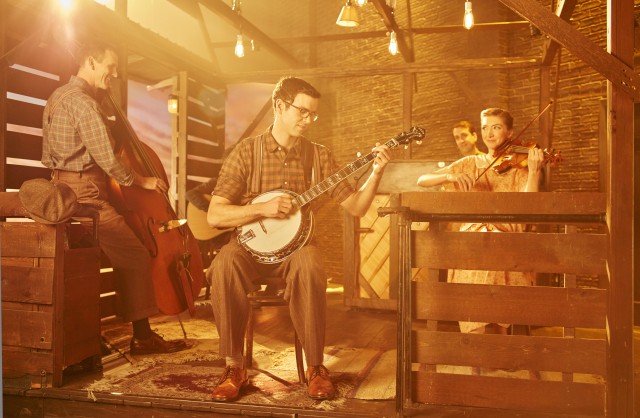
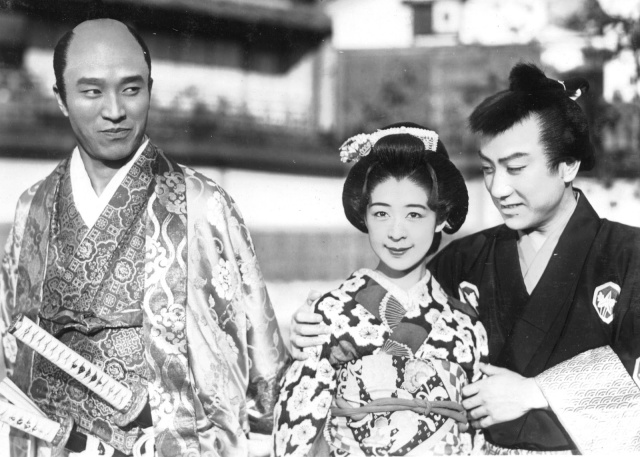
 In the 1930s, on the cusp of WWII, Japan was in the process of creating its own cinematic musical genre. One of the all-time classics is the wonderful Singing Lovebirds, a period romantic rectangle set in the days of the samurai. Oharu (Haruyo Ichikawa) is in love with handsome ronin Reisaburō (Chiezō Kataoka), but he is also being pursued by the wealthy and vain Otomi (Tomiko Hattori) and the merchant’s daughter, Fujio (Fujiko Fukamizu), who has been promised to him. Meanwhile, Lord Minezawa (jazz singer Dick Mine) has set his sights on Oharu and plans to get to her through her father, Kyōsai Shimura (Takashi Shimura), a former samurai who now paints umbrellas and spends all of his minuscule earnings collecting antiques. “It’s love at first sight for me with this beautiful young woman,” Lord Minezawa sings about Oharu before telling his underlings, “Someone, go buy her for me.” But Oharu’s love is not for sale. Directed by Masahiro Makino, the son of Japanese film pioneer Shōzō Makino, Singing Lovebirds is utterly charming from start to finish, primarily because it knows exactly what it is and doesn’t try to be anything else, throwing in a few sly self-references for good measure.
In the 1930s, on the cusp of WWII, Japan was in the process of creating its own cinematic musical genre. One of the all-time classics is the wonderful Singing Lovebirds, a period romantic rectangle set in the days of the samurai. Oharu (Haruyo Ichikawa) is in love with handsome ronin Reisaburō (Chiezō Kataoka), but he is also being pursued by the wealthy and vain Otomi (Tomiko Hattori) and the merchant’s daughter, Fujio (Fujiko Fukamizu), who has been promised to him. Meanwhile, Lord Minezawa (jazz singer Dick Mine) has set his sights on Oharu and plans to get to her through her father, Kyōsai Shimura (Takashi Shimura), a former samurai who now paints umbrellas and spends all of his minuscule earnings collecting antiques. “It’s love at first sight for me with this beautiful young woman,” Lord Minezawa sings about Oharu before telling his underlings, “Someone, go buy her for me.” But Oharu’s love is not for sale. Directed by Masahiro Makino, the son of Japanese film pioneer Shōzō Makino, Singing Lovebirds is utterly charming from start to finish, primarily because it knows exactly what it is and doesn’t try to be anything else, throwing in a few sly self-references for good measure.